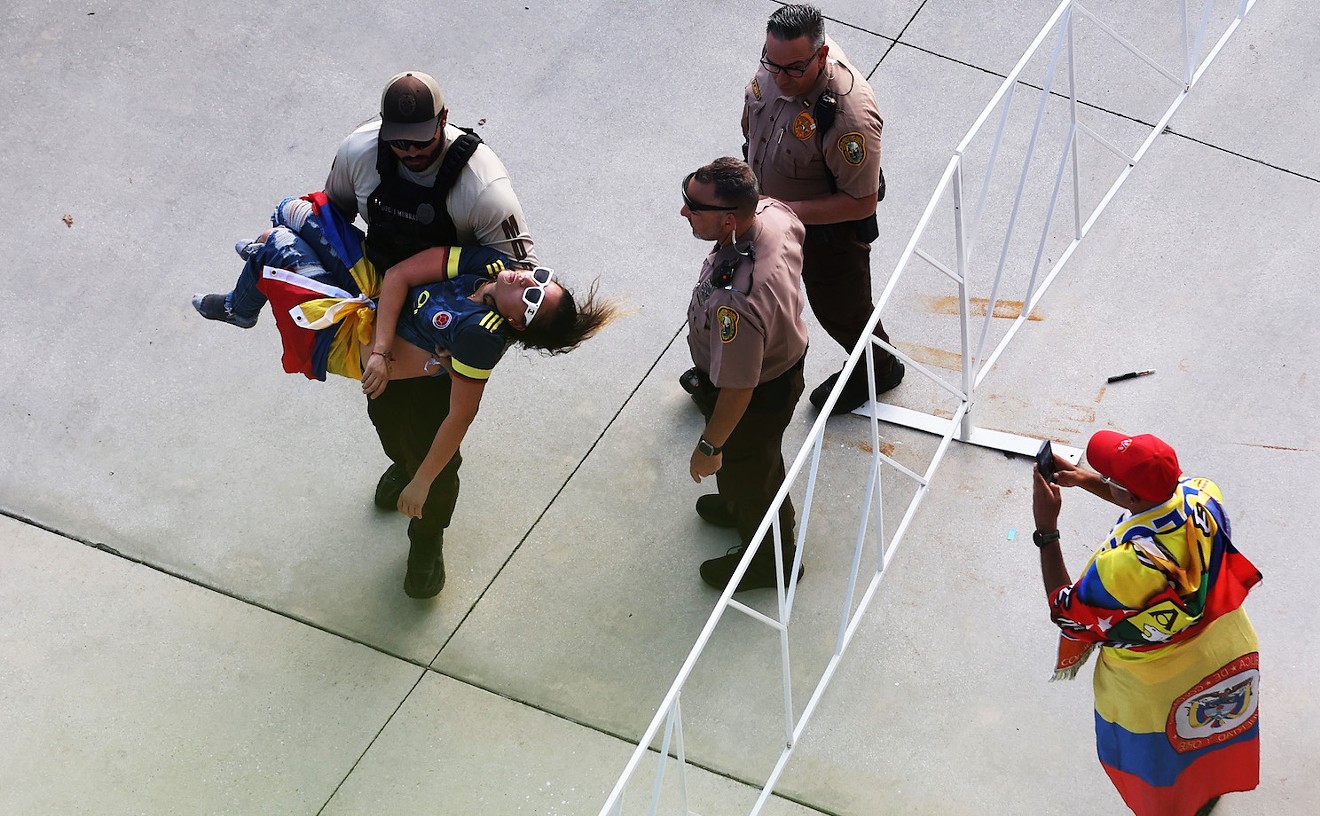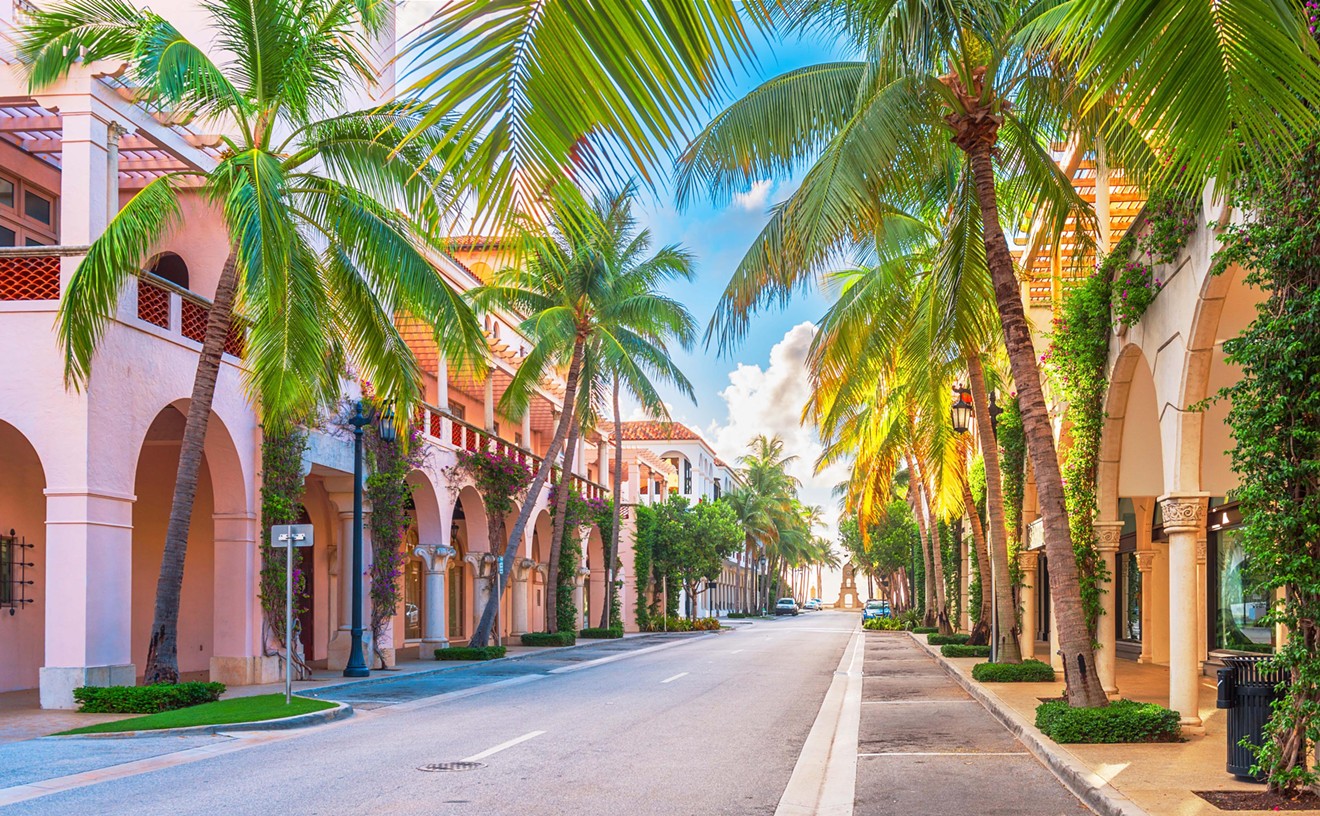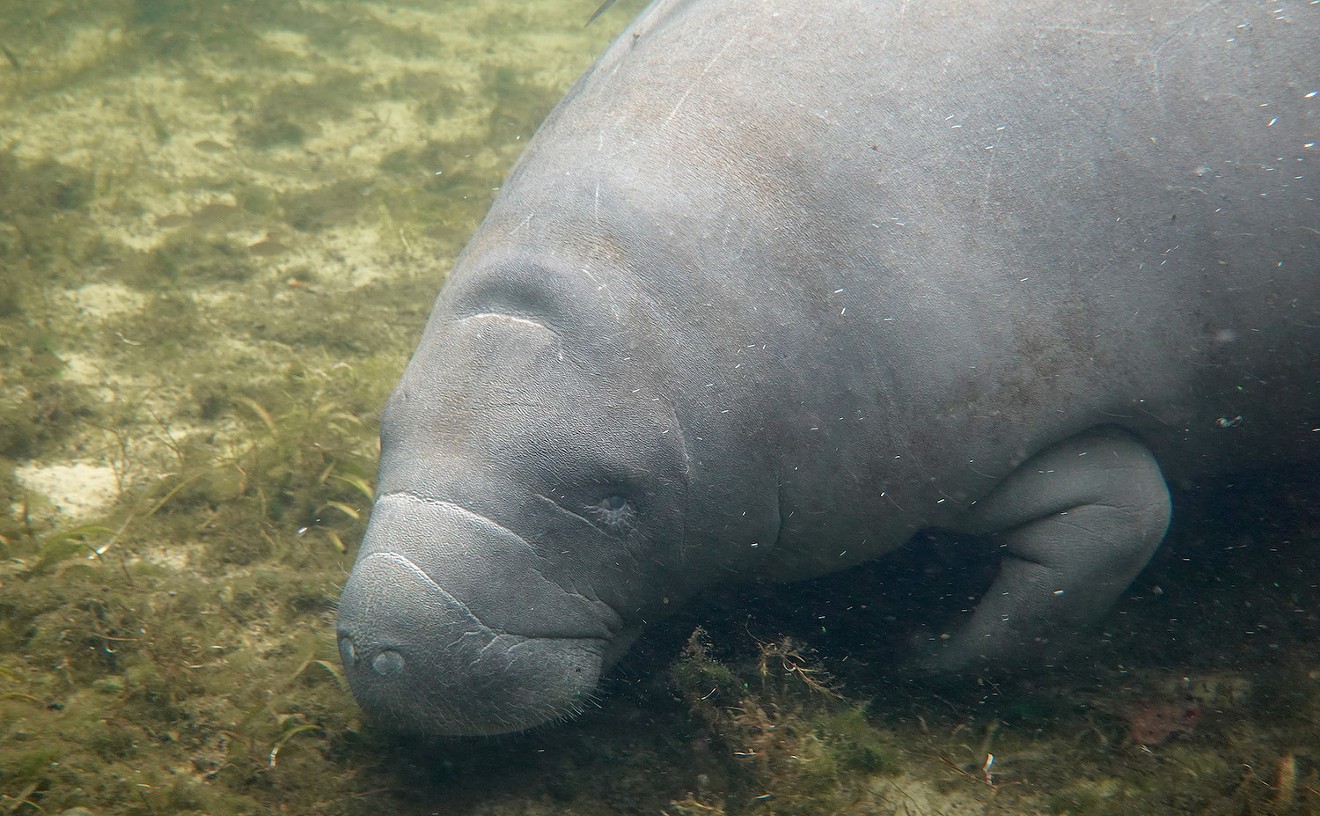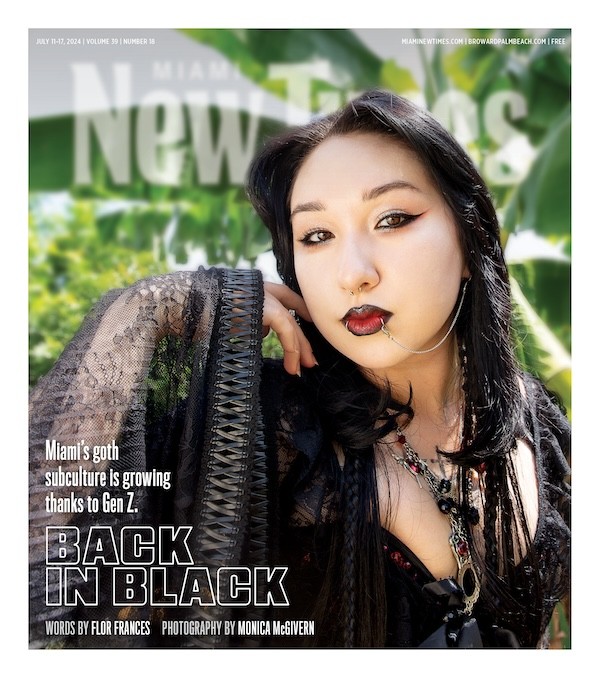Natalie Ramos was driving home from the gym early last Friday when she saw a woman on Biscayne Boulevard crying next to a dog and yelling for help. Ramos stopped and tried to calm the woman, who didn't speak English and pantomimed a series of stabbing gestures and kicks. The homeless dog, Ramos realized, had been attacked in broad daylight and stabbed in the neck.
Vinny the dog's ordeal highlights a growing problem in the area, where dozens of dogs roam free and suffer routine abuse. Those picked up by Animal Services still stand a risk of being euthanized, as efforts to institute a full no-kill policy in the city have stalled without funding.
Vinny's story, at least, has a happier ending.
Ramos picked up the limp, cream-colored fluffy dog, which was at this point struggling to breathe, and hightailed it to Biscayne Animal Hospital. By the time the pup arrived, it was in shock, with fluid accumulating in his chest. It had several deep puncture wounds, multiple fractures, and a broken sternum.
Vinny, named by the hospital staff, will likely make a full recovery thanks to Ramos and the quick veterinary care he received. Once he's discharged, a volunteer will find him a foster home and eventually get him adopted, according to Michelle Thomas of Miami Pet Assistance Coalition, a soon-to-be nonprofit (it registered two weeks ago) created to help the stray dogs of Little Haiti.
Vinny's story isn't unusual, though. Drive down 62nd Street between NE and NW Second avenues and you'll see dozens of strays. Some are wounded; some walk around with the shackles secured by neglectful owners. Most aren't spayed or neutered.
Life doesn't get much better once these dogs are off the streets if they've been picked up by Animal Services. Last summer, the Miami-Dade County Commission passed a resolution backing a no-kill shelter program, but dogs and cats continue to be euthanized.
The number of cats and dogs taken in by Animal Services yearly averages 31,000. About 74 percent of the dogs are saved or adopted out, according to Xiomara Mordcovich, a spokeswoman for the department. (The rate is much lower for cats, but she didn't have the statistic on hand.)
Mayor Carlos Gimenez was supposed to present a financial plan to commissioners within 180 days of their no-kill resolution -- meaning January -- and it looks like he'll finally get around to it in May, Mordcovich says.
Animal Services needs the funding to expand its reach to meet no-kill standards, which require that 90 percent the animals be kept alive. Expanded foster programs for dogs and satellite adoption centers in high-traffic areas such as malls would help.
"We're almost there. We just need the extra push," Mordcovich says. "Anyone who loves animals wants [to implement] no-kill."
In the meantime, volunteer organizations such as MPAC have sprung up to help dogs like Vinny. The organization is holding a fundraiser at the site youcaring.com to "help get more dogs into loving homes," Thomas says.
She hopes MPAC will eventually use funds from the Miami-Dade "Pets' Trust." But for now, the organization is raising money online. One fundraiser is for Vinny's medical care, to which you can donate here.
Follow Miami New Times on Facebook and Twitter @MiamiNewTimes.










